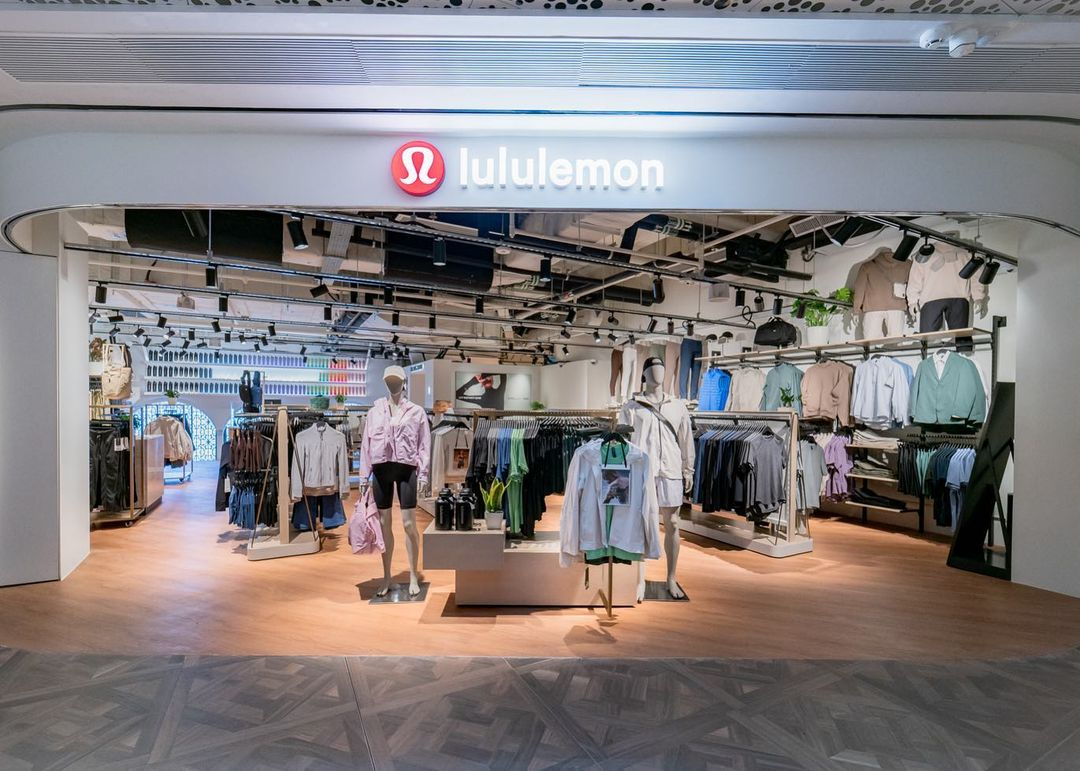Lululemon's High-End Market Approach and Its Success in China
Recently, Lululemon released its latest financial report, drawing attention to its revenue sales in the Chinese market. In the second quarter of this year, Lululemon's revenue in the Chinese market reached $277 million (approximately ¥2 billion), marking an impressive year-over-year growth of 61%. Moreover, for the first half of this year, revenue in the Chinese market surged to $527 million (approximately ¥3.87 billion), demonstrating a remarkable year-over-year increase of 69%. China has undeniably emerged as one of the most rapidly growing market regions for Lululemon worldwide.
Lululemon primarily targets the mid to high-end market segment, with its yoga pants priced at over a thousand yuan, rarely subject to discounts. It has humorously earned the moniker of "Hermès of the Yoga World." While some social media users criticize Lululemon for imposing an IQ tax (智商税 zhìshāng shuì), the brand continues to flourish in the Chinese market. So, why do yoga pants with such high price tags sell exceptionally well in China? Today, let's delve into this topic together.
Unique Market Strategy for the Initial Entry into China- Showrooms Only
In 2013, Lululemon took a significant step towards entering the Chinese market by establishing a subsidiary named Lululemon Trading (Shanghai) Co., Ltd.
However, unlike most retail brands, Lululemon did not rush to open physical stores in China. Instead, they adopted a unique strategy: they established a connection with Chinese consumers through the form of showrooms in Shanghai and Beijing. This strategy persisted until 2016 when Lululemon finally introduced physical stores into the Chinese market.
Using Marketing to Immerse Brand Philosophy in the Chinese Consumer Market
During the three-year period from 2013 to 2016, Lululemon didn't rush for profitability but rather placed brand penetration as its primary objective.
In terms of their marketing strategy, Lululemon chose to collaborate with yoga instructors and fitness coaches across China, as well as establish partnerships with local Key Opinion Leaders (KOLs) who became ambassadors for the Lululemon brand. By providing free or heavily discounted yoga apparel to these brand ambassadors and sponsoring free yoga classes, Lululemon seamlessly integrated its brand culture of "Yoga is a way of life" into the lives of individuals in communities who were passionate about staying active. This approach helped establish deeper emotional connections with consumers.
This deep interaction with the community and fitness enthusiasts made the Lululemon brand more relatable, rapidly accumulating a substantial following. Simultaneously, it garnered trust and recognition from consumers, contributing significantly to its remarkable success in the Chinese market.
A Decade of Cultivation in the Chinese Market Leads to Success
Subsequently, Lululemon accelerated its expansion in the Chinese market, especially in 2022, with a new Lululemon store opening approximately every 15 days on average. According to official data, in just six years, Lululemon has established a staggering 126 stores in China. This rapid expansion has further solidified Lululemon's position in the Chinese market and demonstrates the brand's confidence in the market's potential.
Over the course of a decade in China, Lululemon carefully selected 143 store ambassadors from 23 cities, known as "Product Education Ambassadors." These ambassadors not only regularly recommend products tailored to consumers but also participate in sports events held at the stores. They promote yoga culture and introduce Lululemon's products with their professional knowledge.
Through a series of large-scale collective activities, they not only impart professional knowledge in yoga and wellness but also encourage consumers to explore their self-worth and achieve higher personal goals. Through this immersive experience, consumers gradually shift their focus from the pricing of yoga pants, which can cost over a thousand yuan, to a deeper sense of brand alignment and value recognition.
Today, Lululemon has transcended its origins in yoga wear. It has evolved into a symbol of preference for the middle class, where you can easily spot Lululemon, be it on the bustling shopping streets, in coffee shops, or within modern CBD office spaces. For many women, Lululemon has even replaced traditional jeans as an indispensable fashion choice.
Interested in creating effective Chinese marketing content for your brand targeting the Chinese market? Contact the Lotus Social Team! We're here to help you navigate the intricate world of Chinese marketing and create strategies that leave a lasting impact.




